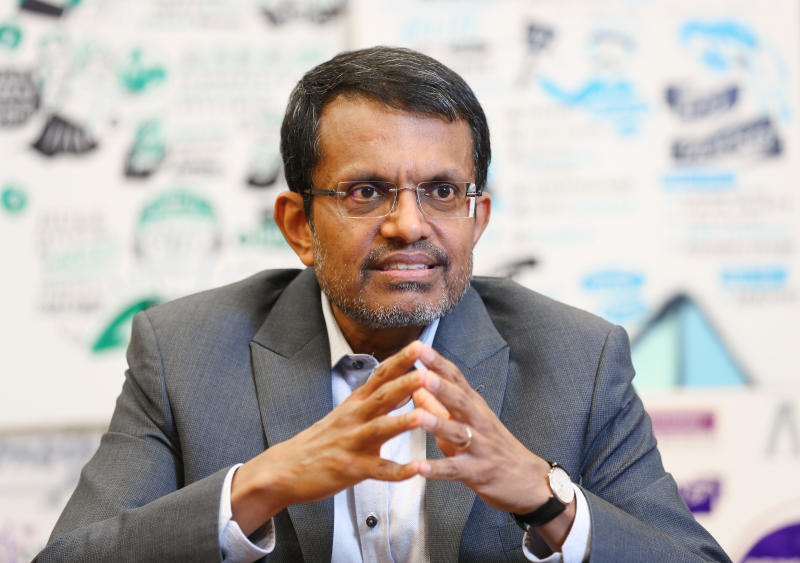Cross-border trade could benefit from greater digital connectivity: MAS chief
Sign up now: Get ST's newsletters delivered to your inbox

Monetary Authority of Singapore managing director Ravi Menon also highlighted the importance of keeping supply chains open.
PHOTO: ST FILE
SINGAPORE - Cross-border trade could benefit from deepening digital and data connectivity, said Singapore's central bank chief on Monday (June 22).
Digital connectivity and keeping supply chains open will be cornerstones in international cooperation in the wake of the coronavirus pandemic, said Monetary Authority of Singapore managing director Ravi Menon.
International trade transactions involve a large number and variety of parties, and the process is "highly fragmented, paper-based, slow and cumbersome", he noted.
"Harmonising and digitising trade documents, and putting them through a seamless digital platform will help to make trade more efficient and secure."
Speaking at the Caixin Summer Summit 2020 via video conference, Mr Menon highlighted that cross-border data connectivity is a particularly important dimension of digital connectivity, which needs to be deepened across countries to expand opportunities for global trade among people and businesses.
Noting that Covid-19 has shown that the ability to leverage the cloud to store and access data is critical for business continuity and cyber security amid travel restrictions and office closures, he said: "We need to put in place agreements to enable cross-border data flows in a secure and seamless manner, so that digital transactions can be consummated efficiently.
"Digital connectivity and trusted data corridors are to the digital economy what free trade agreements were to the traditional economy," Mr Menon said.
He noted that Singapore has signed digital economy agreements with countries such as Australia, Chile and New Zealand, and these provide clarity and certainty to firms moving data across jurisdictions, supporting business operations and risk management.
In his speech, Mr Menon also highlighted the importance of keeping supply chains open, noting that greater diversification of supplies and building redundancies in the global value chains are more effective ways to build resilience in a post-Covid-19 world, instead of countries retreating behind their respective borders.
"If every country were to try to grab what it could, we will all end up with less," he said, urging countries to coordinate actions to minimise supply chain disruptions and enhance economic recovery.
Economies and societies are deeply intertwined, as the virus pandemic has shown, Mr Menon said.
"The way forward should be one of even closer cooperation and deeper integration - keeping global supply chains open and strengthening digital connectivity across nations."
The summit, which is held at the China World Summit Wing Hotel in Beijing, is organised by Chinese media group Caixin.


